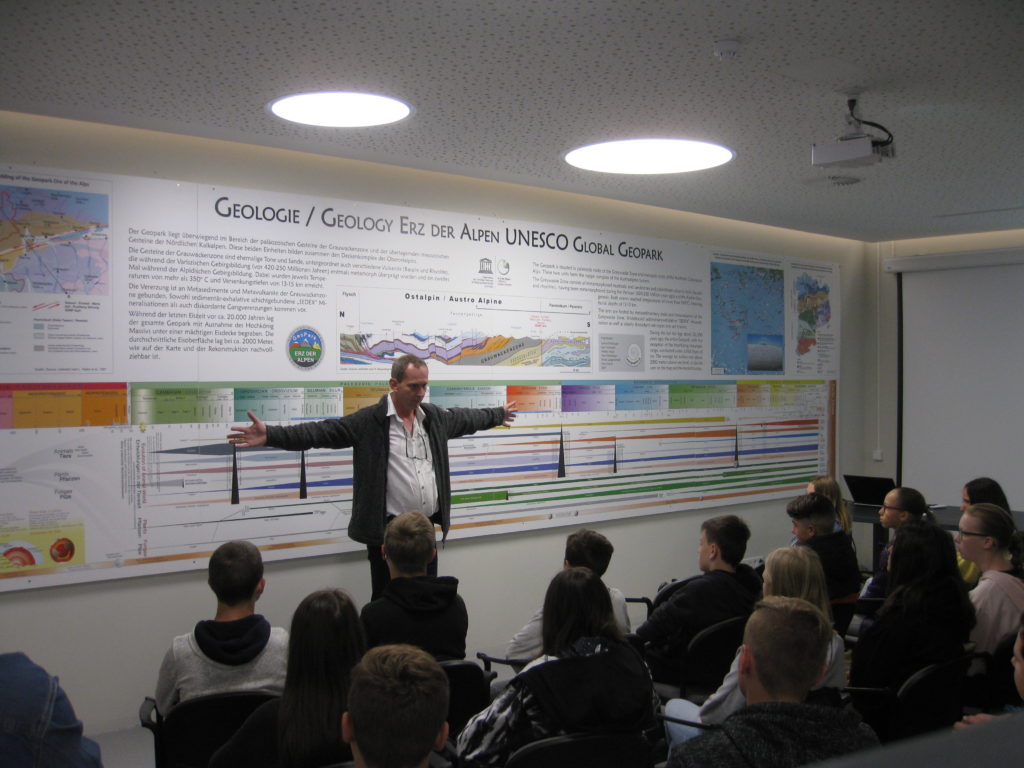Projects
Successful revalidation
The project Revalidation and Upgrade of Geological Information in the Ore of the Alps UNESCO Global Geopark was financed by the Geopark funding of the National Committee "Geo/Hydro Sciences". The project was completed in 2023 and the specified objectives were achieved: securing the UNESCO Global Geopark status for a further 4 years, the creation of a brochure "Geotopes in the Ore of the Alps UNESCO Global Geopark" and the creation of a brochure "Soils in the Ore of the Alps UNESCO Global Geopark" with extensive information to be used as educational material. Thanks are due to the Austrian Academy of Sciences and the National Committee Geo/Hydro Sciences.
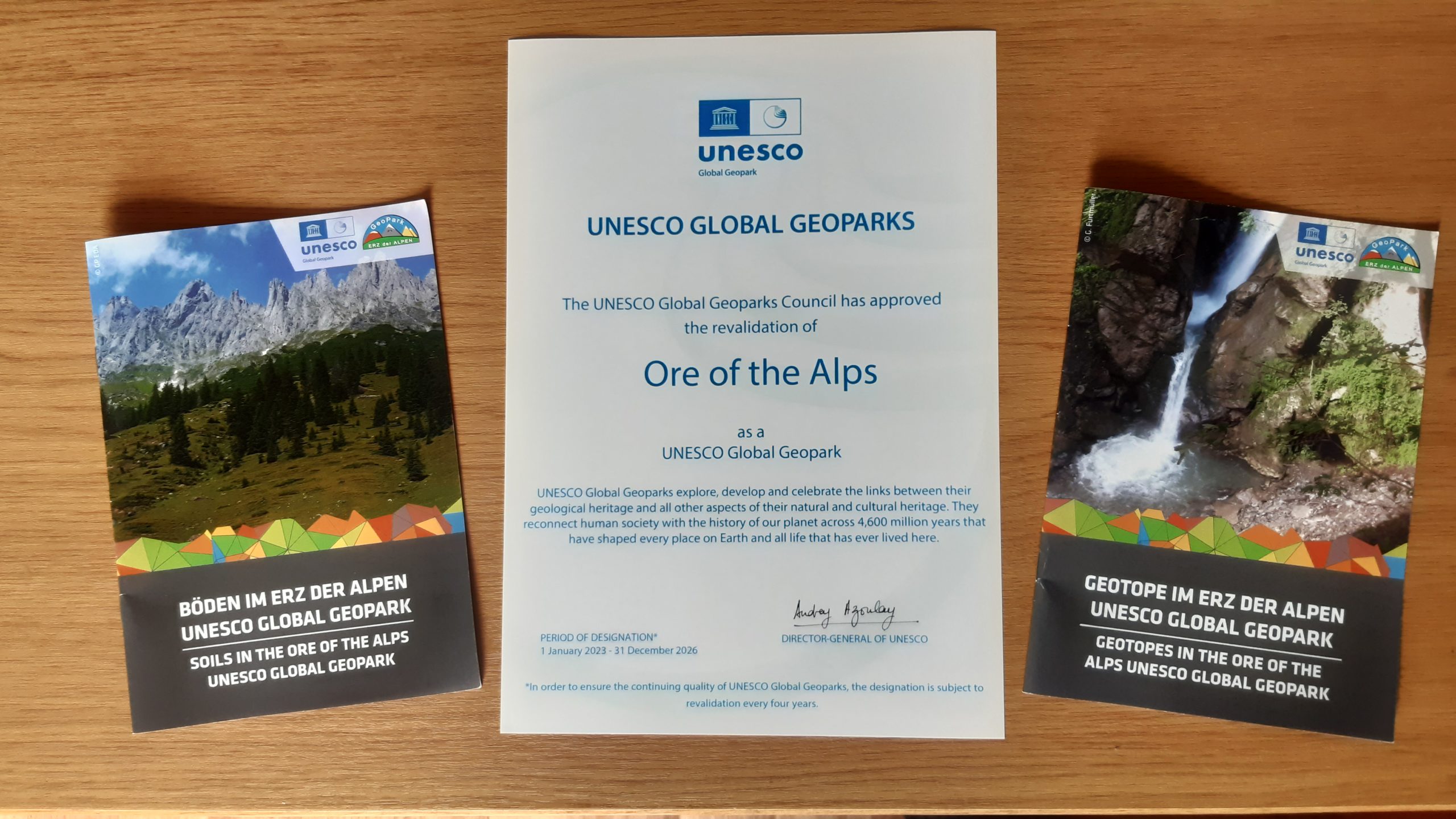
Danube Transnational Programme
The Ore of the Alps UNESCO Global Geopark participates as an "Associated Strategic Partner" in the "Danube Transnational Programme". The aim of this project is to capitalise on the unique geoscientific value of the UNESCO Geoparks located in the Danube catchment area through sustainable tourism development. Particular emphasis is placed on the involvement of the local population, a so-called "bottom-up approach", especially in the geoproduct strategy (GeoFood).
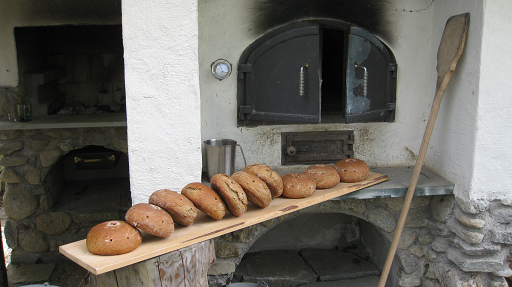
ESS-Movemont project
ESS-programme "Moving mountains - landslides as geosystem services in Austrian Geoparks". Where are the mass movement areas in the Geopark? What are the unmistakable characteristics of an active or fossilised mass movement area? An environmental education programme entitled "Mountain hazards in times of climate change" is to be developed in cooperation with the University of Salzburg and the ZAMG (Central Institute for Meteorology and Geodynamics). Mudslides, rockfall and landslides are considered a permanent risk potential in the Geopark. Project of the Austrian Academy of Sciences.
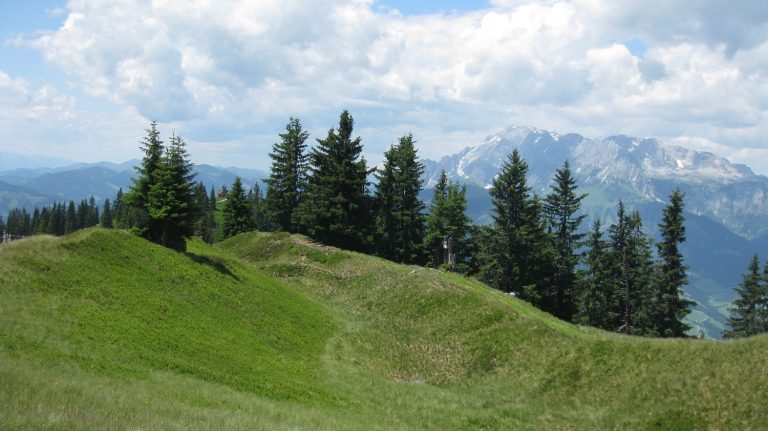
Austrian Geopark Strategy
Preparation of the Austrian Geopark Strategy: The three Austrian UNESCO Global Geoparks Steirische Eisenwurzen, Karawanken and Erz der Alpen are in the process of drafting the Austrian Geopark Strategy 2021-2030. Together with the Austrian UNESCO Commission (ÖUK) and the Austrian Academy of Sciences (ÖAW), a strategy paper is being developed that is intended for submission to the federal and state governments and clearly defines the position of geoparks in Austria. Work on this should be completed by autumn 2021 at the latest. Photo from left to right: Horst Ibetsberger, Gerald Hartmann, Oliver Gulas, Heinz Kollmann.
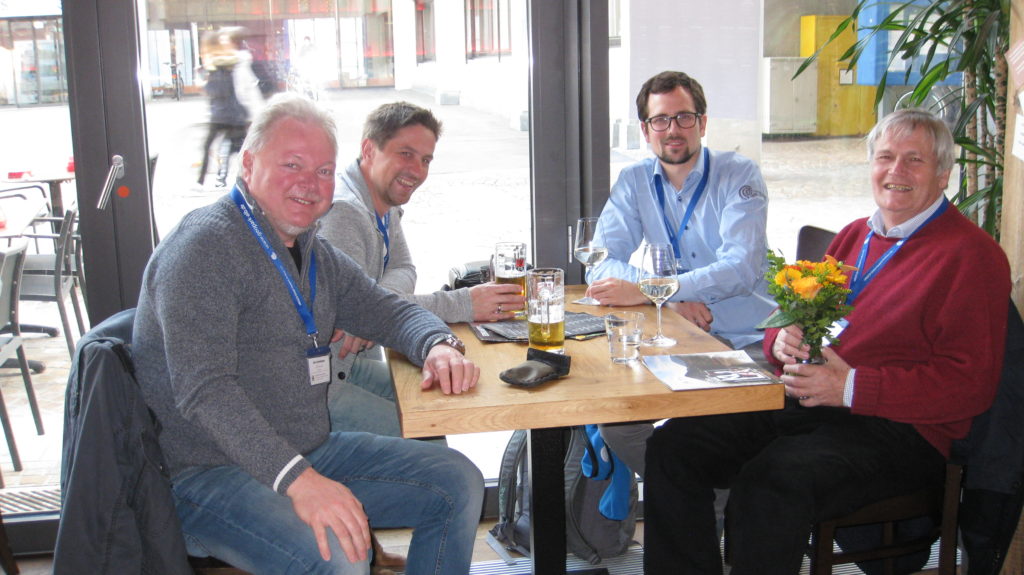
Relaunch of the copper ore trail and creation of information boards on the geosites:
A LEADER project is currently in the application phase, which aims to update the Erzweweg Kupfer and valorise the geosites. In addition to the Geopark municipalities and tourism associations, the University of Salzburg - Department of Geography and Geology - is also expected to make a significant contribution. The project is to be realised in 2021/22.
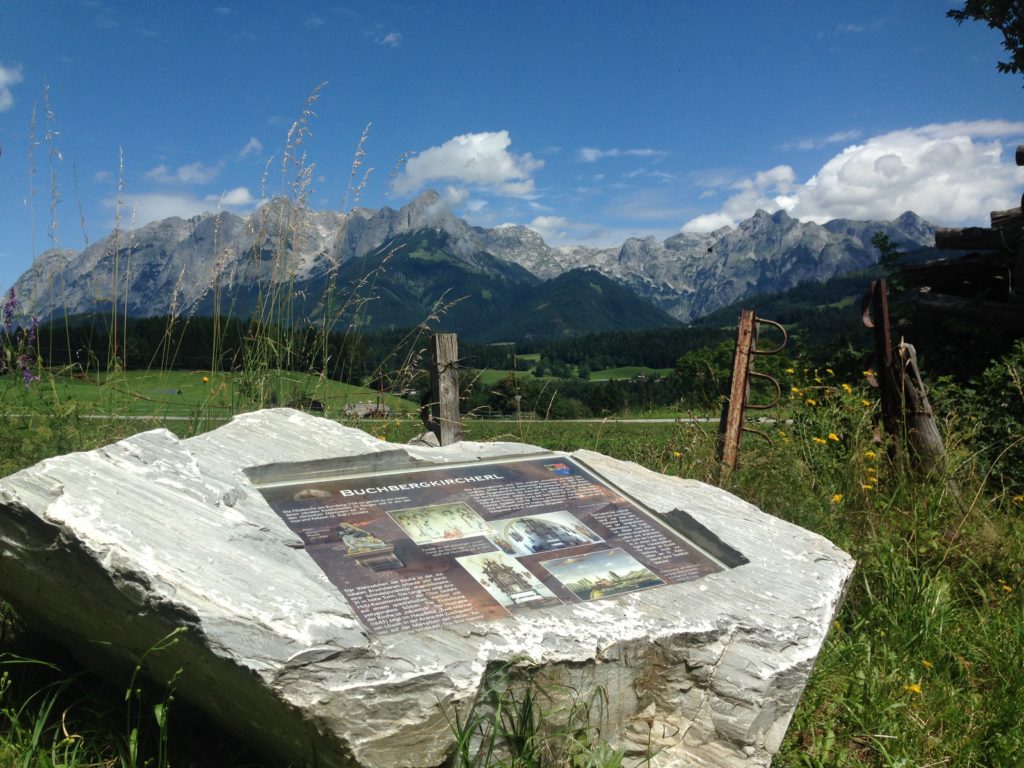
Extension of the co-operation agreements with the geopark partners Inselsberg - 3 Gleichen in Thuringia and Porphyrland in Saxony.
The joint workshop in Bischofshofen to draw up a medium-term strategy paper was scheduled to take place in June 2020. Due to the coronavirus, this was postponed to June 2021 and is now scheduled to take place in September 2021. We would also like to take this opportunity to congratulate our partner Geopark in Thuringia on achieving the goal of becoming a UNESCO Global Geopark!
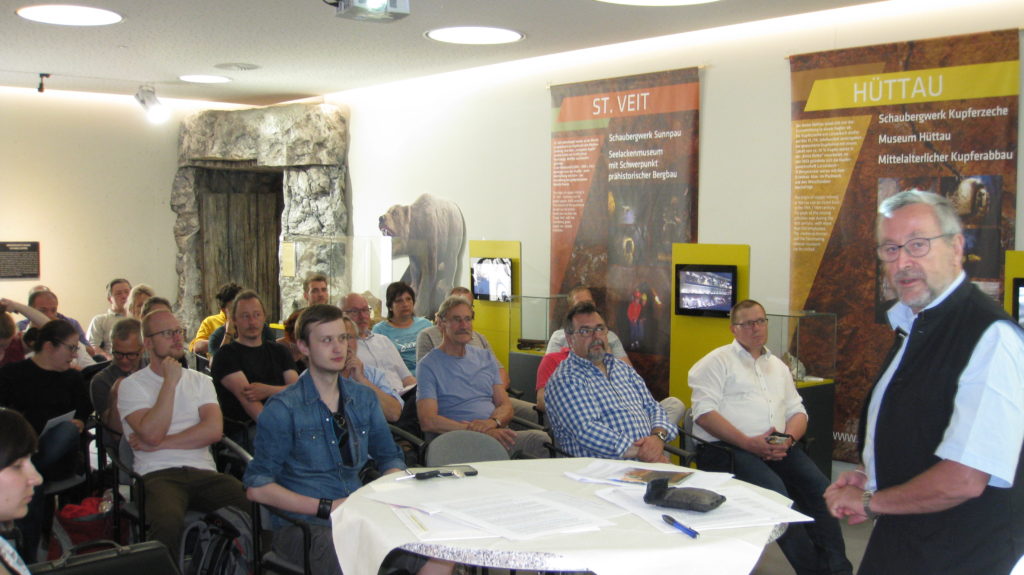
Climate Action Day Bischofshofen Visitor Centre 2019/2020... Climate protection is environmental protection
The project focuses on the awareness and education aspect with the establishment of the Erz der Alpen UNESCO Global Geopark Visitor Centre as an up-to-date climate platform for the younger generation. Installations and interactive stations are intended to raise awareness and encourage a rethink in terms of climate protection and environmental protection. Indoors, the climate scenario has been presented in a striking way that is suitable for pupils. Outdoors, there are six stations with topics such as biodiversity, neophytes, protective forests, bees, soil sealing and climate change adaptation.
In 2020, the campaign was continued in several schools before the corona break.
